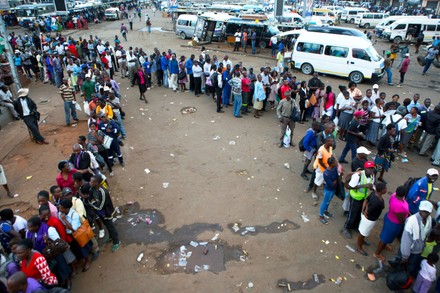By Newton Mambande
HARARE – AN INEFFICIENT public transport system can have an adverse impact on the economic growth and development of the country, whether developed or developing. It is notable that its bearing impact could be felt when the financial economy experiences increased costs, reduced productivity, and limited employment opportunities.
Because of the poor efficiency of public transport, the social life of the common citizenry, especially for the low-income and underprivileged groups, are the ones that mostly suffer from the economic consequences brought by the economic vagaries linked to limited public transport.
Before the challenges of an inefficient public transport system are addressed squarely, having an understanding and knowledge of its causes is important. This should not be merely academic, but the identification of the reality of the inefficient public transport system is essential for averting its effects. Corruption, mismanagement, and policy misinterpretation might be regarded as the underlying causes of public transport system challenges. Therefore, the article not only looks at the effects of an inefficient public transport system, but it also offers alternative solutions.
One of the factors that determine the cost of production is the public transport system. If the public transport system is poor, it means there will be increased costs of production. The characteristics of a poor public transport system are the following:
→ Traffic congestion
→ Dysfunctional railroad network
→ Lack of modernized railway and road networks
→ Pirate transport operators or unregistered transporters operating in the parallel market economy, superseding the transporters in the formal economy
→ Decay of public infrastructure such as roads, airports, and railways
All these characteristics result in increased costs of production. Let me put it this way: It’s a fact that railways are the most affordable mode of public transport when it comes to transporting bulk goods at local and regional levels. In the Zimbabwean case, due to the lack of a modernized railway network, many producers in the agribusiness and manufacturing industry have resorted to road transport, which is more expensive.
Even though the road transport system in Zimbabwe is more efficient and effective than the railway, the truth is that, in comparison to global standards, it falls short. Poor road maintenance is found in both rural and urban areas, and as a result, there is infrastructure decay to such an extent that it is difficult to conduct road rehabilitation. In this regard, transporters are forced to abandon areas with an inefficient public transport system. This results in less competition amongst transport operators, as they can hike transport fees at the expense of productivity in the economy.
There is plenty of solar energy and hydroelectric power that could be harnessed at low cost; however, we are not utilizing them fully to benefit from an efficient public transport system. In addition to that, there is ethanol locally produced at Green Fuel Chisumbanje and Tongaat Hulett’s companies, Hippo Valley Estates and Triangle in Chiredzi. What is amazing is that the country heavily relies on petroleum imports, rather than sustainable sources of energy that don’t need foreign currency. Once the country starts to consume homegrown energies, it will not only reduce costs of production and improve the public transport system, but it also strengthens Zimbabwe Gold (ZiG) against the United States dollar (USD). Further, as the economy is being cushioned against the vagaries of an inefficient public transport system, investor confidence in economic sectors such as travel and tourism, the manufacturing industry, and infrastructure development improves. This can be achieved fully provided measures of good governance to curb development malpractice and corruption are formulated and implemented.
As it stands right now, people spend excessive time commuting due to traffic congestion and unreliable transport. When it comes to limited job opportunities on the market stemming from poor public transport, this means there is a possibility of a growing black economy. For instance, pirate transport operators are taking advantage of the technicalities related to government policies and laws. At the end of the day, the public transport system failure can contribute to reduced revenue collection, mostly needed by insurance companies and the government to keep the economy afloat.
In the forthcoming article, we will delve more on social and environmental effects attributed to a poor public transport system, and suggest recommendations for policy planners and implementers.
Newton Mambande is an entrepreneur and researcher. He has published scientific research in internationally acclaimed journals. He can be reachable via newtonmunod@gmail.com or by phone: +263773411103.
Discover more from Etimes
Subscribe to get the latest posts sent to your email.




